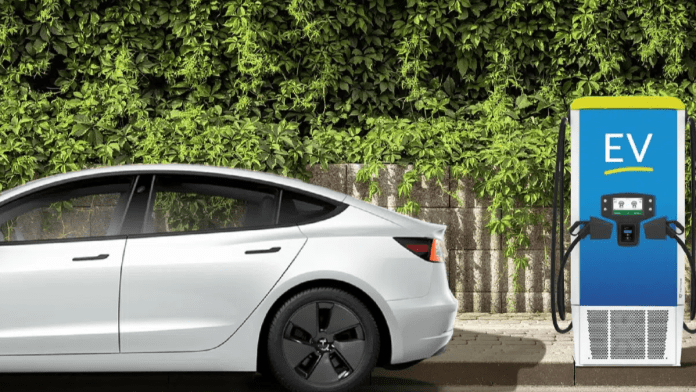🕒 Last updated on July 14, 2025
Electric vehicles (EVs) are proving to be a game-changer in the global fight against climate change. A new report by a respected clean transportation research group has revealed that battery electric vehicles now produce 73 percent less pollution over their lifetime compared to traditional petrol-powered cars.
Electric cars are now far cleaner than gasoline-powered ones
This means that from the moment an EV is made to the time it is scrapped, the amount of carbon dioxide (CO₂) it releases is far lower than what petrol cars emit. The study looked at everything—car production, fuel use, driving emissions, and end-of-life disposal.
According to the study, every kilometer driven by a gasoline-powered vehicle emits roughly 235 grams of CO₂.. In contrast, modern electric cars emit only 63 grams per kilometre over their full lifespan. That’s a massive difference and marks a 24 percent improvement from a similar study done four years ago.
This shows how quickly clean technologies are moving ahead. In Europe, battery electric vehicles are already far more efficient than any other kind of vehicle, including plug-in hybrids and hybrids.
Battery Emissions Shrinking, EVs Get Clean Fast
One of the most common criticisms against electric cars has been their battery production. It’s true that making batteries creates more emissions at the start. The battery alone is actually responsible for 40–60% of the pollutants produced during the manufacturing of an electric automobile.
However, this “pollution gap” closes very quickly. Once an electric car starts running, it soon becomes cleaner than a petrol car. The report found that after just 17,000 kilometres — roughly one to two years of normal use—an EV becomes less polluting than a petrol car.
This tipping point is happening faster now thanks to cleaner electricity, better factories, and more efficient batteries. As electric vehicle technology improves and more battery factories use renewable energy, the carbon footprint of building EVs continues to shrink.
Even more impressive is how well electric vehicles perform when powered by clean electricity. If an EV is charged using wind or solar energy, the total emissions drop even further—down to 52 grams of CO₂ per kilometre. That’s a 78 percent reduction compared to petrol-powered vehicles.
This clearly shows that the source of electricity plays a big role. In countries or areas that use coal or gas for power, EVs still perform better than petrol cars because electric motors are much more efficient. While petrol engines turn only 16 to 25 percent of fuel into motion, electric motors can convert up to 91 percent of electricity into movement.
Hybrids Fall Behind as EV Sales Surge
Many people think hybrid vehicles are a good balance between petrol and electric. But the numbers tell a different story. The report found that regular hybrids cut emissions by just 20 percent, while plug-in hybrids offer a 30 percent reduction. These are much lower than the 73 percent reduction offered by fully electric vehicles.
Tesla Faces Growing Crisis as More Owners Trade in Their Vehicles
This shows that while hybrids offer some improvement, they are still far behind EVs in reducing pollution. For anyone serious about cutting down their carbon footprint, going fully electric is clearly the better option.
Meanwhile, more people are making that switch. In 2024, global sales of electric vehicles crossed 17 million units, marking a 25 percent increase from the previous year. This rapid growth is being driven by better battery technology, more charging stations, and increased awareness about climate change.
Electric vehicles are now not only cleaner but also more accessible and convenient for everyday use. Their growing popularity is a sign that cleaner transport is becoming the new normal.

